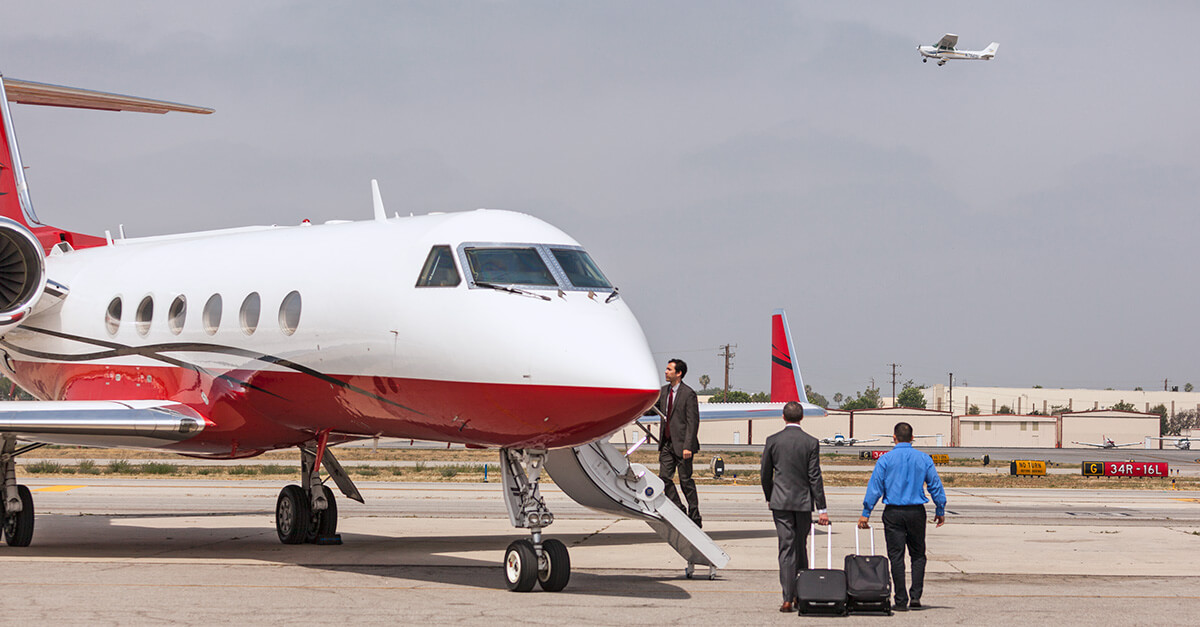
Aug. 10, 2020
With the 2020 election cycle well underway, business aircraft operators may be asked to fly candidates running for office. It’s a perfectly ordinary consideration, but flight departments should understand what’s involved, and NBAA has those answers. A recent NBAA News Hour webinar featured details with answers to the most commonly answered questions.
In short, the complexity of meeting federal, state and local laws and ethics rules – while ensuring compliance with insurance and tax requirements, and company procedures – can be difficult to navigate, according to NBAA Senior Vice President, Strategy and Innovation, Mike Nichols, CAM, CAE.
For example, candidates are often required to pay for travel to avoid issues governing in-kind campaign contributions, which if breached can have civil and possibly criminal implications. To accommodate this requirement, U.S.-registered Part 91 operators can be reimbursed for providing travel to candidates. “The idea is to ensure that the private operator is not receiving a favor or doing a favor for the candidate,” explained Joanne Barbera, founding partner at Barbera & Watkins, LLC.
The rules governing the transport of a federal election candidate primarily are determined by the FAA and Federal Election Commission (FEC), although operators should also familiarize themselves with regulations from the U.S. Department of Transportation and the IRS, Barbera noted. Under FAA rules, she added, a Part 91 operator can receive reimbursement from candidates running for federal, state or local office, or anyone acting as an agent for the candidate or working on the candidate’s behalf.
While the FAA rules allow reimbursement from candidates, there are restrictions that Part 91 operators must be aware of, said Jason Maddux, principal at Garofalo Goerlich Hainbach PC. One notable restriction is a U.S. House of Representatives ethics rule that generally prohibits members of the House from using personal, official, or campaign funds to pay for or reimburse the expenses of non-commercial air travel. There are limited exceptions to this prohibition which are detailed in the House Ethics Manual.
“The rules for the carriage of a candidate are very complex and I would always recommend you seek advice from counsel that specializes in FEC, or state and local election laws, before providing travel for any candidate,” said Maddux.
Beyond the passenger regulations, Barbera also noted that the transport of political candidates can impact company policy, insurance coverage and tax liability.
“If you have a company aircraft, you want to check your company aircraft usage policy or company procedures relating to the carriage of passengers to determine what is and is not allowed,” she said. “Also, check that your insurance policy provides coverage for the flight as you would be receiving compensation. Some non-commercial aircraft policies may preclude compensation. In addition, you should be aware of what disclosures you will be required to make.”
Essentially, the carriage of a political candidate requires a Part 91 operator to think as a commercial operator, explained Ellen Urell, head of aviation services at Geller & Co.
“It is important to remember that these rules are incredibly nuanced. When you look at a flight, it’s not always immediately clear where payment is required or by whom and you really need to drill down for each passenger on each leg and understand their purpose for traveling,” she said. “Part 91 operators are not used to gathering tons of data on a flight and that’s going to be a cultural shift for you and your team.”
NBAA has also created a resource for Part 91 operators seeking information on the carriage of federal political candidates that includes detailed information on reimbursement rates, government- and candidate-owned aircraft exemptions, and recordkeeping requirements.


 International Business Aviation Council Ltd.
International Business Aviation Council Ltd.